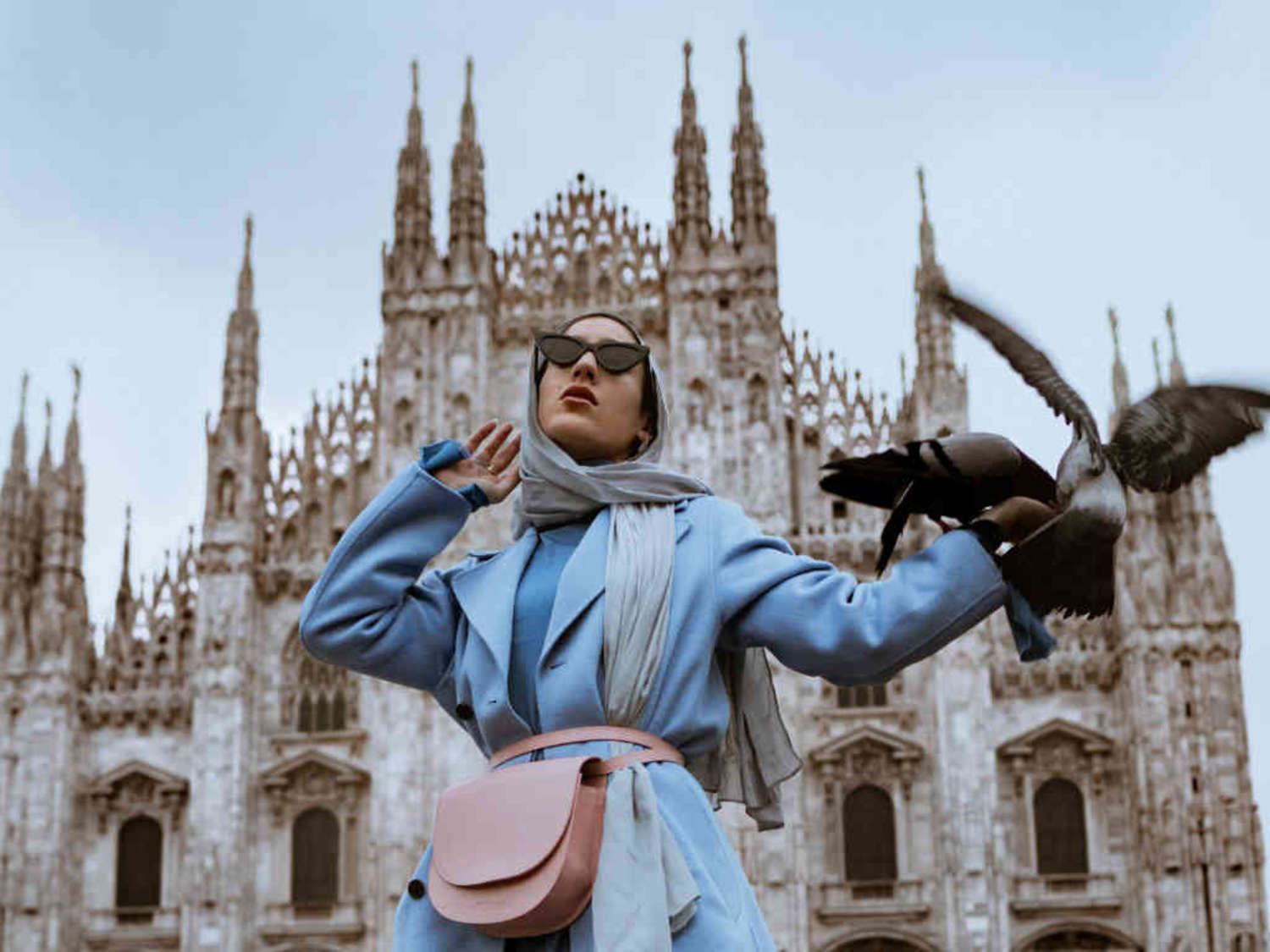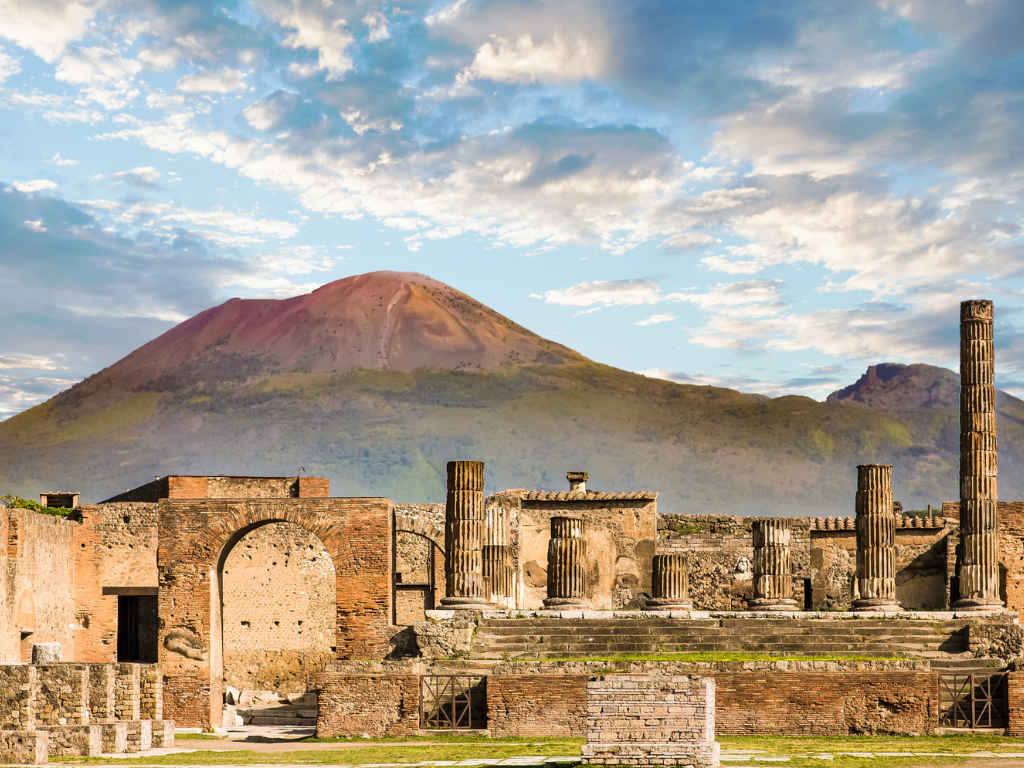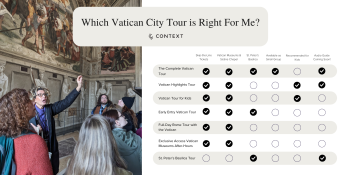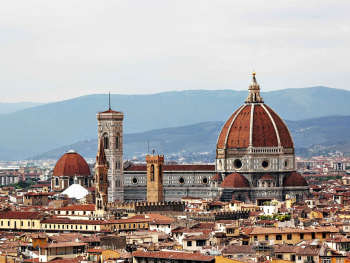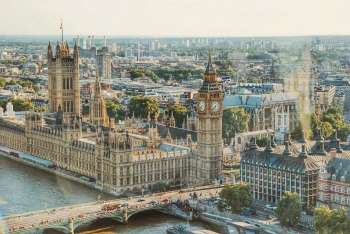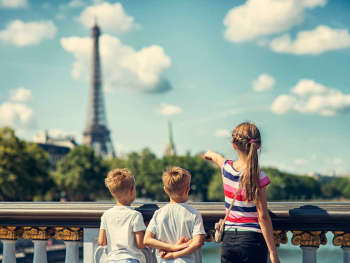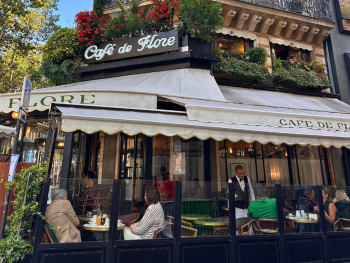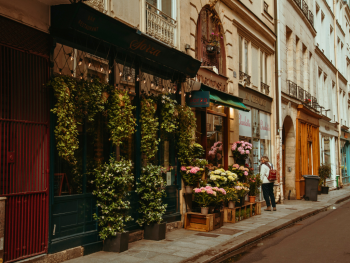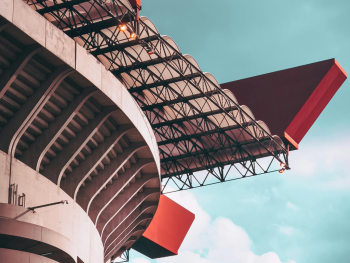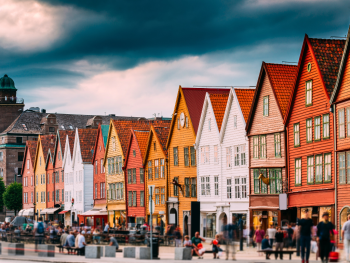Milan is a city of striking juxtapositions. Renaissance façades stand shoulder to shoulder with glass-clad towers. Sculpted gardens soften the sharp angles of modernist buildings. Here, Gothic grandeur meets contemporary cool—and nowhere is that more apparent than in Milan’s deep connection to fashion.
Long hailed as the style capital of Italy, Milan exudes elegance from cobblestone piazzas to haute couture ateliers. But how did this northern Italian city—one without the political status of Rome or the artistic cachet of Florence—become the birthplace of brands like Prada, Armani, and Versace? The answer begins centuries before the catwalk.
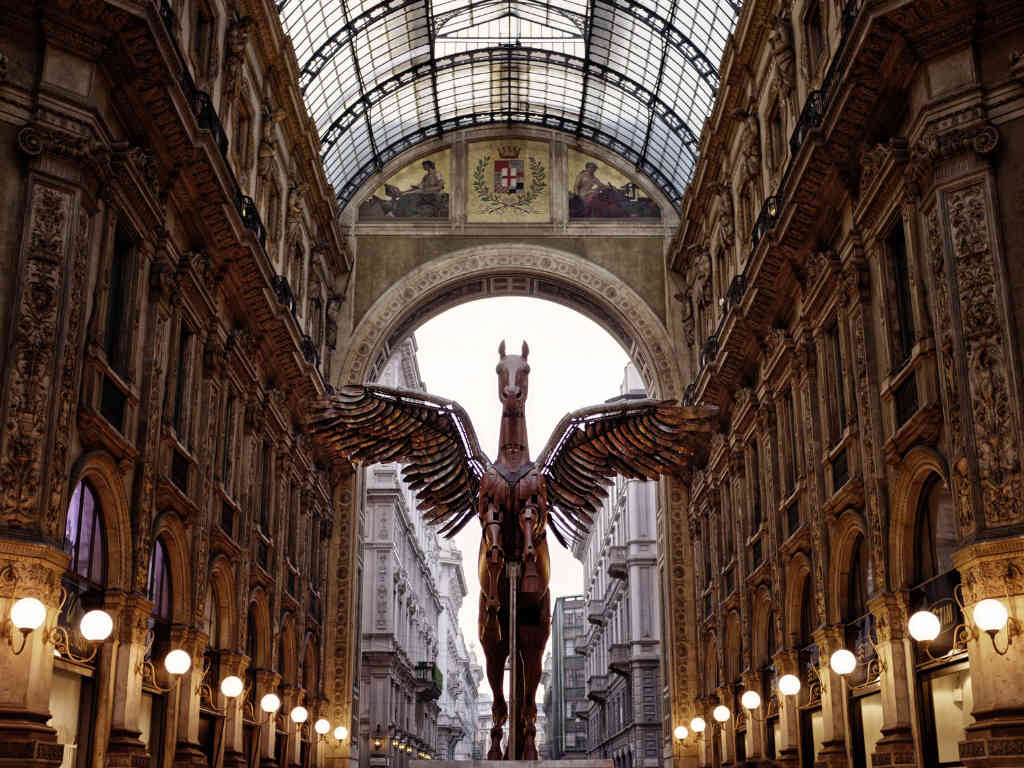
Italian Fashion Before Milan Took the Lead
To this day, Italy’s name is synonymous with trends in high fashion, which was true for the country since the Renaissance. Italy’s reputation in fashion was first set by the monarchy. Everyone wanted to dress like the nobility, and they dressed lavishly. The 15th century was a time of artistic flourishing and vibrant colors. Women in Italy wore elaborate clothing, jewelry, makeup, and other accessories while men wore pigmented colors and intricate embroideries on their tunics, both to signal their position and authority. You can often see this in Leonardo da Vinci’s portraits of the Florentine elite.
During this time, cities such as Florence, Venice, Milan, Naples, and Rome produced their own textiles and fabrics like wool, silk, and velvet. The legacy of this industry lasted through the mid-20th century when the fashion market started to become increasingly competitive. That’s when Milan began to make a real name for itself.
The city was a textile powerhouse even then, prized for its workshops and skilled artisans. Its location made it a hub for both innovation and trade—qualities that would serve it well in the centuries to come.
Fast foward, and big names in fashion like Giovanni Battista Giorgini, Emilio Pucci, and the Fontana sisters used celebrities and the influence of the growing popularity of the film industry to put on fashion shows in Rome, Venice, and Florence. Italy was fast becoming the destination for clothing trends around the world, and Milan emerged victorious as the city known for fashion.
The Rise of Milanese Fashion
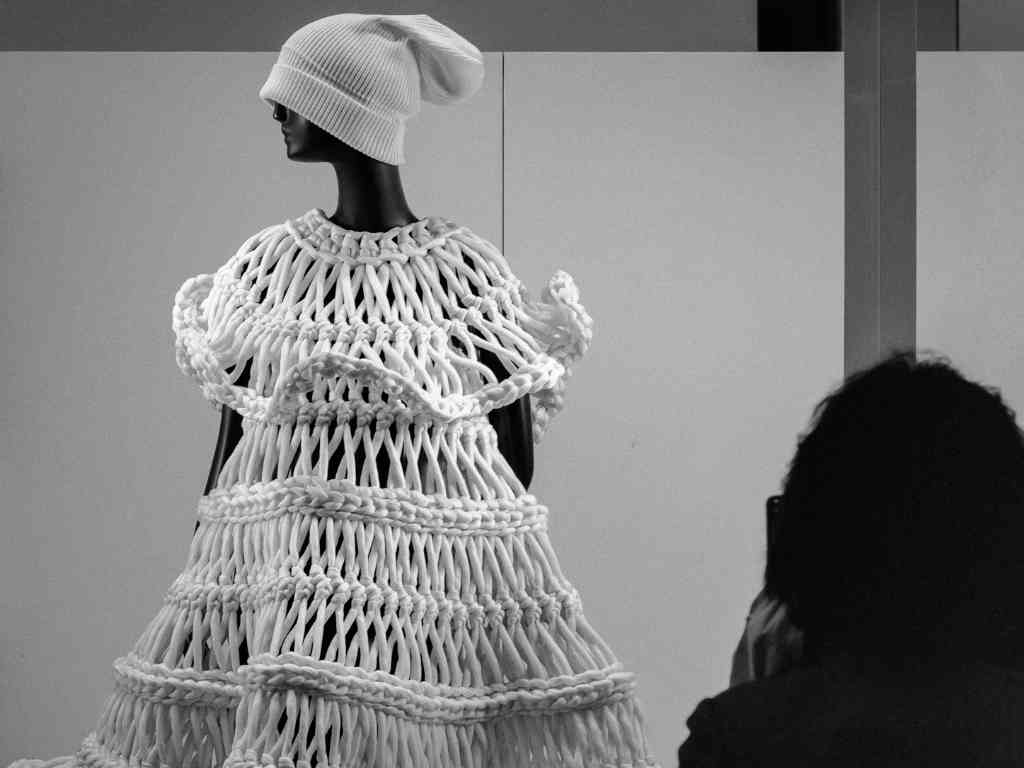
By the latter half of the 20th century, Milan was a prominent industrial city with good manufacturing connections. While cities like Florence and Rome dominated early 20th-century Italian fashion, Milan’s industrial edge set it apart. By the 1950s and ’60s, Milan had become a manufacturing stronghold—offering designers the infrastructure to produce clothing at scale without sacrificing quality.
Pioneers like Giorgio Armani and Gianni Versace didn’t just design beautiful clothes—they created a new visual language that fused clean tailoring with bold sensuality. Their influence, along with the launch of Vogue Italia in 1961, positioned Milan as the pulse point of Italian fashion. From minimalist suits to flamboyant prints, Milan spoke to both restraint and exuberance.
Fashion Week & The Era of the Supermodel
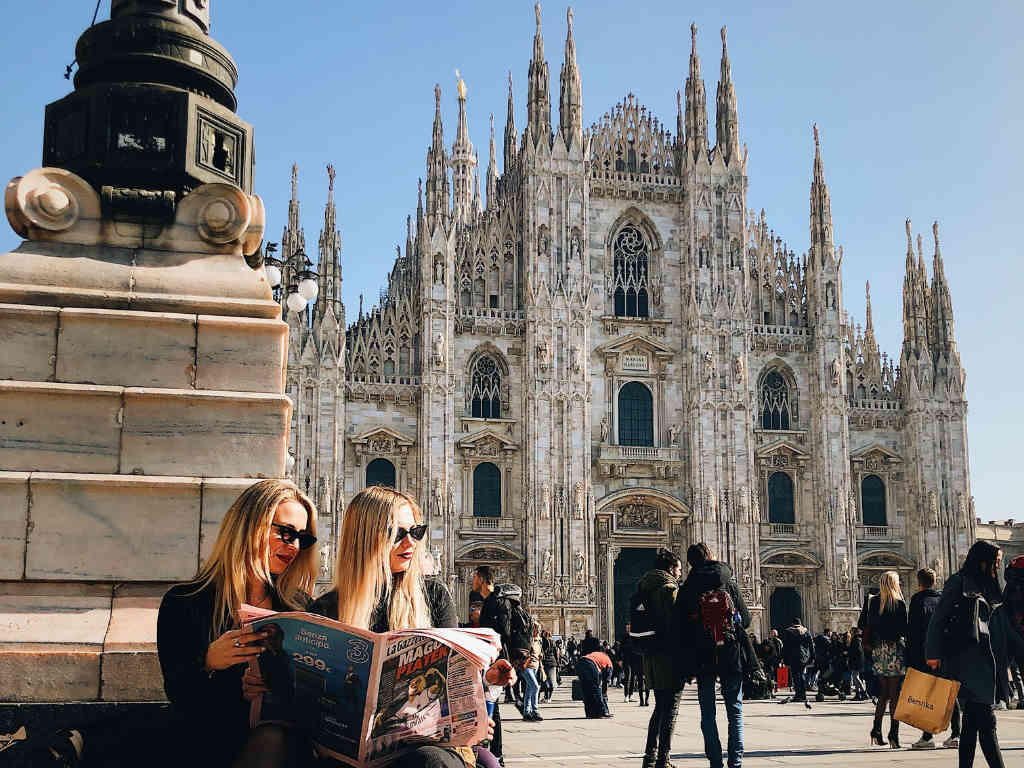
It was during Milan Fashion Week in the late 20th century that the city’s place on the global fashion stage was sealed. In 1991, Versace’s iconic runway show—featuring supermodels like Naomi Campbell, Cindy Crawford, and Linda Evangelista—was more than a spectacle. It was a cultural reset.
Since then, Milan Fashion Week has continued to draw international attention. The city became one of the Big Four, alongside Paris, London, and New York—not just for the clothes, but for the energy, drama, and creativity that define each season’s debut.
Milan's Iconic Shopping Districts
Wandering through Milan today, you can feel the lineage of luxury in the very fabric of the city.
The Quadrilatero d’Oro, or Golden Rectangle, is Milan’s high-fashion heart. Enclosed by Via Montenapoleone, Via della Spiga, Via Sant’Andrea, and Via Manzoni, it’s home to flagship boutiques from every major Italian house. The original Prada store, founded in 1913 in the Galleria Vittorio Emanuele II, still exudes the timeless refinement that defined the brand from day one.
Beyond the big names, Brera offers a quieter kind of style—bohemian, eclectic, and deeply Milanese. Here, art galleries brush shoulders with vintage shops and artisanal leather ateliers. It’s a neighborhood where creativity hums beneath cobblestones, and every shop tells a story.
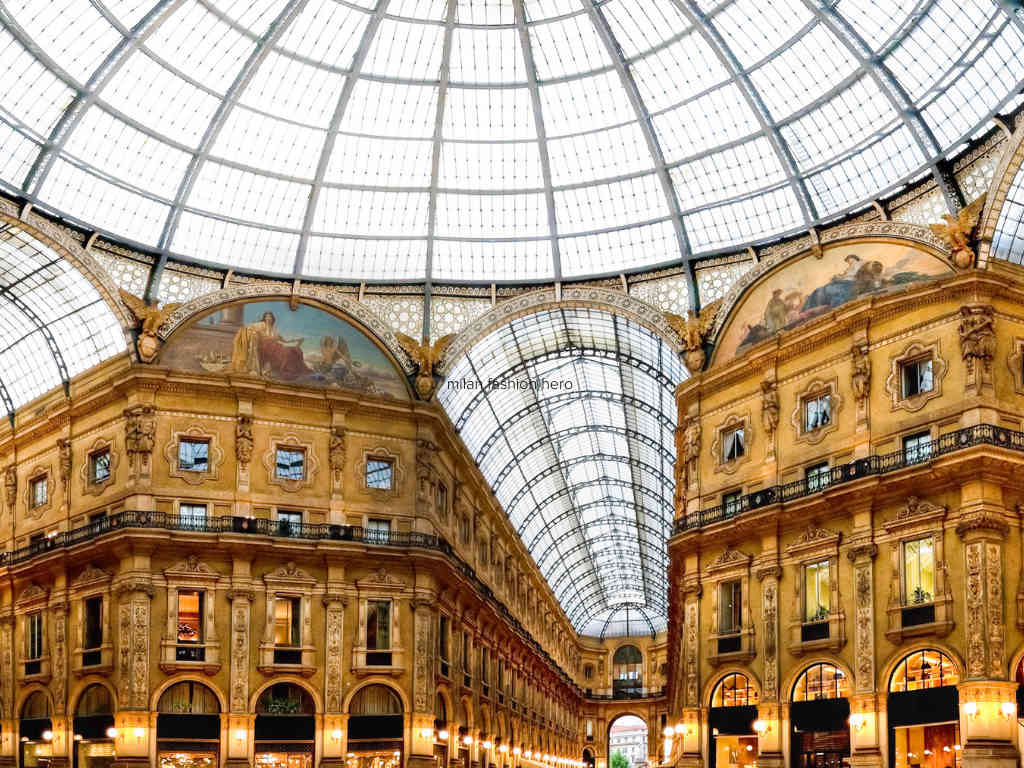
Via Monte Napoleone, Via Sant’Andrea, and Via della Spiga
Via MonteNapoleone is an absolute must-see if you’ll be shopping in Milan. This renowned area is known for its exclusive and unique shops that you wouldn’t be able to find anywhere else. Do a little window shopping, and you’ll see the district’s high-end boutiques that boast elaborate fashion from world-renowned designers. Many big names in Italian fashion had some connection to these recognizable streets.
If you’re looking for something less flashy than the average designer brand, Milan has independent boutiques, particularly in the charming neighborhood of Brera. Bohemian and artsy, you can find something for everyone to enjoy in this district. You’ll find artisanal goods such as leather as well as vintage stores for the retro-loving spirits.
Aside from fashion, this area contains the Palazzo di Brera, a beautiful art gallery, a quaint botanical garden, the Museo del Risorgimento, which houses the first Italian flag, an aquarium, architectural landmarks, and more.
Experience Fashion, in Context
With centuries of artistry stitched into every seam, Milan isn’t just a city that wears fashion—it is fashion. To understand its influence, you need more than a stroll down Via Montenapoleone. You need a guide who can decode the symbolism in a stitch or the legacy behind a logo.
Our Milan Couture Fashion Tour offers just that: a deep dive into the history, personalities, and politics that shaped Milan’s style identity. Want to explore at your own pace? Try our High Fashion in Milan Audio Guide, which lets you wander through iconic districts with expert insight in your ear.
Because when you understand Milan’s fashion, you begin to understand Milan itself.
